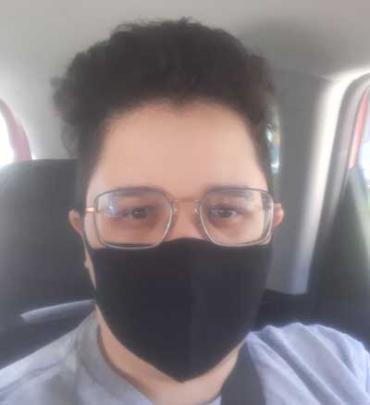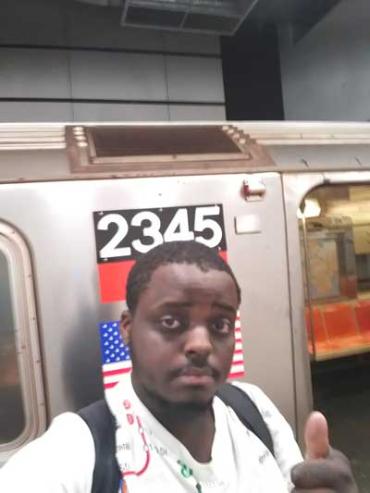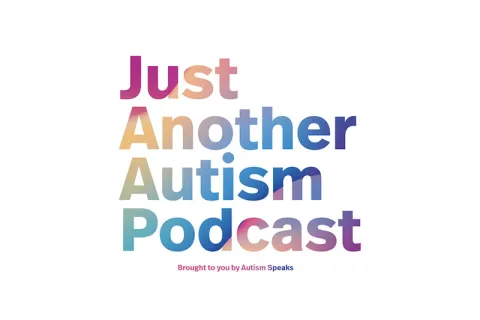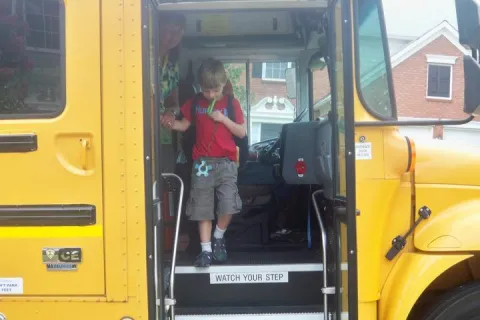Preparing for changes to transportation as an adult on the spectrum
The journey during the transition into adulthood often includes taking steps toward independent living. Developing crucial life skills like grocery shopping, laundry and scheduling appointments helps facilitate the transition from teenager to independent adult, and one important piece of that transition can be learning to get from place to place. Whether it’s driving a car, walking, riding a bike or taking public transportation, traveling is a skillset that can help create a more independent adult life.
For many people with autism, access to public transportation is essential. Although mastering the daily schedules, routes and the inevitable delays can be daunting, many autistic people depend on public transit to commute to work, school and social gatherings. During today’s climate, getting from Point A to Point B may look much different with social distancing regulations and the mandate on facial coverings, but Chade’, Terrence and Adam say it’s all about preparing and adapting, with safety in mind.
Transportation experiences from autistic adults
Chade’ K., 31
Colorado Springs, CO
Commuting during a pandemic is something I never expected. The entire world has changed and adapting to public transportation was overwhelming. Truly, there is no perfect way to maintain your distance on a city bus. Also, the routes became longer since drivers were not available to work. My first attempt to ride the bus since the pandemic was unsuccessful. While I stood staring at the open doors and masked driver, anxiety filled my mind.
Eventually, I no longer attempted to take city transportation for two main reasons. First, I was unable to manage the sensory overload from wearing the mask in the heat, and my panic attacks increased. Second, to take the bus anywhere was now over 45 minutes one way due to certain routes ceasing activity.
Now, I rely on family to drive me to doctors’ appointments. I started working remotely because I could no longer commute via public transportation. I live in my apartment and rarely leave.
The struggle to adapt in this worldwide climate is exhausting for a person like me, with autism. I have sensory issues from masks and increased anxiety because some people ignore the rules.
To find a mask that was bearable and to wear it without my skin crawling or hurting from the texture, I just tried them all! I bought different types of masks until I found one that I could wear comfortably.
Some people do not wear masks or adhere to social distancing. As a person with autism, it is difficult to communicate and explain to someone “Please do not get so close to me.” One way to overcome this issue is a notecard that says “Please back up. I have autism and cannot talk to you right now.”
It sounds cliche, but it actually works. This means I avoid confrontation and still stay safe while traveling. As a person on the spectrum, I have always practiced social distancing. I kept people at arm’s length because I do not like to be touched or be in close proximity to others. The thing is now neurotypical people have to adapt to a massive social change and this takes time.
Terrence F., aka "T-Man,” 28
Charlotte, North Carolina
My name is Terrence, but my friends call me “T-Man.” I’ve been working as a data entry clerk at JP Morgan/Chase in Charlotte for the past nine years. My commute to work has changed slightly for me during the pandemic because the Charlotte Transit buses were running on it’s the Saturday schedule, with some of the higher frequency routes like Routes 1, 7-11 and 27, running a little bit more than usual. For me, taking public transportation is safer than driving a car, so I have to deal with delays and schedule changes just as drivers have to deal with traffic jams.
I have my route to work down to a science. It takes me an hour and a half to get where I need to go on most days. To overcome this, I plan ahead each day, especially during inclement weather during the mornings and/or light rail construction during the time I take the bus to work. The worst part of using public transportation is when you have to wait longer than usual.
My advice for people on the autism spectrum would be to plan your trips ahead of time. Always give yourself some extra time so you aren’t stressing over time. Do not hesitate to call the public transit hotline to find out if your train or bus is on schedule. If you're in a rush and wanted to use taxi service, use Lyft or Uber wisely.
My advice to anyone traveling on public transit during these times is to play it safe! Use a face mask and avoid communication with passengers as best you can. But I’d also tell if you do those things properly, public transportation always gets you where you need to be!
Mary Fay N., 29
Mahwah, NJ
In some ways, commuting to work from my home in Mahwah, NJ, to my job at Community Supports Network in Fairfield, New Jersey, since the pandemic hit our area in March has made life slightly easier. Less people going to work meant less traffic on the roads to deal with every day. It actually made it way easier and less stressful for me, especially since at that time I was still getting familiar with the different routes to my work office.
Also, since time management is always something I’ve struggled with, having less cars on the road, meant that I had a little wiggle room when it came to what time I would have to leave in the morning. I’m certainly getting better every day with managing my time and setting plans before trips, but it’s something I still struggle with, so it was nice to have a little extra time. Now since there are a lot more people back on the roads, I have to remind myself to really pay attention to leaving more time for traffic delays etc. so adjusting back to that has taken some time and getting used to of late.
I also have to remind myself of the most important thing; driving safely. Things like traffic and traffic accidents and detours etc. are out of my control, so I have to focus on the things I can control. I’ve been focusing on stressing less about driving to work and getting there on time because I am learning more and more how to manage my time. Once I began focusing on that, things started to get easier for me. Another thing that helps me in this area is having patience. For some reason, I always seem to get stuck behind the slow driver or in the lane that isn’t moving, so I had to learn to have more patience. It’s not easy, but I’m getting better every day – I’m just lucky to have amazing people who support me at my job and understand some of the struggles I deal with on a regular basis.
Here’s a recent example of how learning how my daily commute to work has helped me to better deal with adversity and change in other areas of my life:
A few weeks ago, I experienced my first flat tire as a driver. As I pulled off the exit on the highway to head towards my office, I saw my tire pressure light turn on. Thankfully, I was close to work, but this instantly gave me major anxiety! I slowly made it into the parking lot and immediately told my co-worker, job coach and the director of employment services, Rachel, about what just happened. She helped to remind me that I have dealt with similar situations like this in the past and that these things happen.
Rachel suggested that during my lunch break the easiest best option would be to call AAA, since I’m a member, to come and change my tire. They had to remove a nail that was stuck in the tire and install the spare so I could safely drive my car home to my car dealership. Also, while waiting for AAA I was able to call the dealership’s service center to let them know about my tire situation and set up a time to bring in my car to replace my tire.
Long story short is that I’m slowly learning that we all face adversity, but it’s all about how we handle it that makes us who we are. Whether it’s at home, surviving the commute or working in the office, having a strong support system and utilizing the skills that I’ve learned through the years, is most important. Whether you are on the spectrum or not, my advice would be to know your strengths and your weaknesses and work on both to make your life easier!











